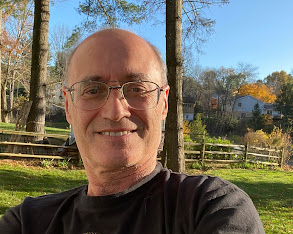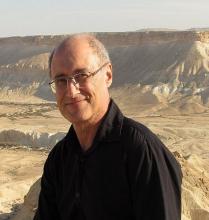Message from our Program Manager - June 2022
In March of 2020 Secretary-General António Guterres of the United Nations said: “The fury of the virus illustrates the folly of war”, calling for an immediate global ceasefire in all corners of the world. If he only knew what he would face two years later, when five Russian missiles hit Kyiv "immediately" after he and Ukrainian President Volodymyr Zelenskyy finished their meeting in Kyiv. There is a popular joke: If you ask someone there about COVID, they’ll shrug their shoulders “what is it?” What is happening now could not be believed in the beginning of this year. Not a single analyst suggested a scenario of a full-scale war between Russia and Ukraine, which Russia keeps calling a “special operation” – a limited regional conflict in eastern Ukraine was expected by many, though. During this “special operation”, millions of people became refugees, hundreds of thousands became homeless, dead or wounded. And the war goes on, at least at the time of this writing. This conflict will have repercussions not only for Ukraine and Russia. It will affect the whole world, not only militarily. Both countries are the biggest providers of grain to many regions in the world, especially the Middle East and Africa. The disturbed supply is already felt by some countries. It is ironic that the war started right after we finished our webinar series on the impacts of regional conflicts on land-cover / land-use change. Unfortunately, our program is affected in a serious way as we have collaborations with Ukraine in the ongoing projects. The annual GOFC-GOLD SCERIN workshop was to be held in Lviv in the end of this May, but it was held virtually, hosted by our colleagues in Lviv, with the help of START. The collaborators in Sergii Skakun’s (U. Maryland) project on Ag in Ukraine had to leave Kiev and now it’s questionable how they’ll be able to function, but at least they are safe. The planned ground observations and validation activities will most likely be impossible in the near future.
It's been very difficult for me to work during the past couple of months as so much has been happening, so I am distracted by continuously listening to information and analysis from various sources. The good news is that the virus situation has reduced to the level that “the return to office” notices have been issued and travel has resumed. The first official travel for me was in May to the ESA’s Living Planet Symposium in Bonn, Germany – a big event every 3-4 years. It was so exciting to meet international colleagues face to face, some still masked, after 2.5 years.
We are very hopeful to celebrate the Program’s Silver Jubilee in October this year face to face in Bethesda, MD with an option to connect remotely. Regular lectures at universities already moved from its virtual mode to regular. We have had a few GOFC-GOLD regional network virtual workshops postponing our regular regional meetings for the last 2.5 years. So, now we’ll have again opportunities to develop ideas for joint proposals and projects while on a field trip, build relationships and do networking. On the downside, we, in the US, are back to suffer from jet lag in both directions. The next international regional SARI meeting is planned to be held in Cambodia in August 2022.
The next year LCLUC Science Team meeting is planned for May in College Park, MD. It will be held along with the Carbon Cycle and Ecosystems Focus Area joint meeting as we did a few years ago. The LCLUC meeting per se will be just one day. But some LCLUC projects will be presented at the joint plenary sessions as well as at the poster sessions. Such joint meetings are a bit crowded but allow for good interdisciplinary interactions. For those LCLUC PIs who are also members of other Science Teams in the CC&E Focus Area (Terrestrial Ecology or Biodiversity) it’s also time/traveling/budget saving. Other meetings, including international, will be announced on the website. I’d like to remind you that the “Mapper” requires YOUR verification. The website support team (Meghavi and Indu), have worked diligently on developing this nice tool. I often served as a trouble shooter, but it needs your personal attention: each and every one of you please spend a few minutes reviewing your Project Page to make sure that all is up to date. Check whether any team members are missing, the location is correct, or if any docs (publications, presentations) or info on some of your students can be added. Since the website is the face of the program, having inaccuracies can reflect negatively on the program as well as on your specific team when we give the links to outside researchers. We want to be proud of the program and its website. Please play with the Mapper: check out what projects have been conducted in geographic areas or subjects you are working on. The latest achievement is the Hotspot map, which is populated each time we have a new selected project, as the Hotspot element has been included in each recent call. Also, please be responsive to emails you receive from our website coordinator Meghavi, who is continuously working on improvements. Please provide info on your media involvement, other PR, and awards. We all need to know about achievements of our members! Talking about awards, the LCLUC Deputy Program Manager Krishna Vadrevu received the 2021 Excellence in Achievement NASA Headquarter Honor Award. And the LCLUC Program Scientist Chris Justice received the highest honor that U. Maryland bestows on faculty members – the 2021 Distinguished University Professor Award – congrats to both, my primary help in running the program!
On the data side, Landsat-9 was launched in September. I was going to attend the launch, but the date slipped a couple of times, so I had to cancel my trip. Landsat-8 and -9 data together with ESA Sentinel-1 and -2 publicly accessible data provide observations of a target almost every couple of days, supporting multi-source land imaging projects in the LCLUC Program. On the other hand, Very High-Resolution data from commercial companies, like Planet Lab and Maxar, are increasingly used by LCLUCers, including the recently selected LCLUC-20 and -21 projects. There are more and more opportunities for accessing these data (see the website), for example the Norwegian government purchased wall-to-wall data for the tropics to tackle deforestation issues, and they are available for free to all researchers. NASA purchases data as the projects come in, so opportunities constantly grow.
The LCLUC-2021 “early career scientists” selections were announced, and we have new young talents added to the program. Late in 2021, an amendment to ROSES-21 was issued calling for proposals on SARI Synthesis. The proposals were reviewed, and the results will be available within the next couple of months. The LCLUC-2022 proposals are going through its step-1 review, the results will be announced in the next month or so. Keep in touch with me for any help and advice.
Good luck to everyone, let the good prevail over evil, and let it be peace!
- Garik




Comments
Post a Comment